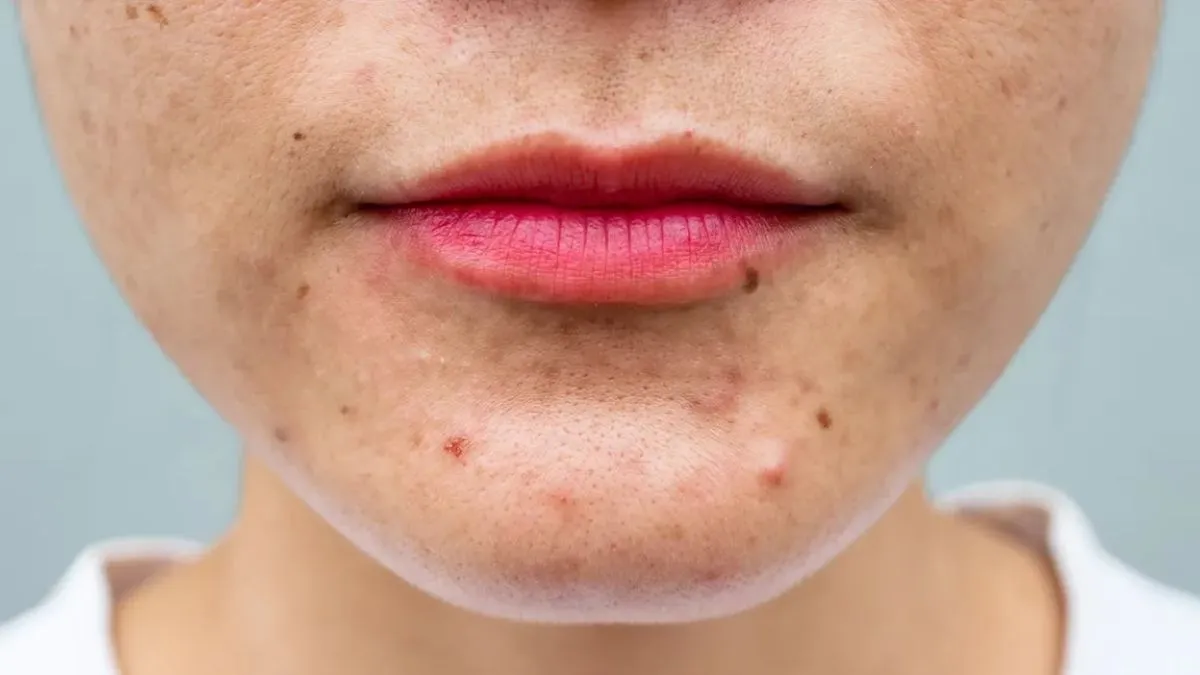Acne is a common skin condition that is suffered by a lot of people. Acne can happen in different parts of the face and each could be due to a different cause. Acne on the chin is a common skin concern that can affect people of all ages, but it's especially prevalent among women. Often associated with hormonal fluctuations, chin acne can be persistent and frustrating.
Understanding the root causes is key to managing and preventing breakouts in this area. Dr. Jawaharlal Mansukhani, Consultant, Dermatology at Kokilaben Dhirubhai Ambani Hospital, Mumbai shares the common causes that lead to acne on the chin.
Hormonal Imbalance
One of the leading causes of chin acne is hormonal fluctuation. Androgens male hormones present in both men and women can stimulate excess oil production in the skin. This oil, or sebum, can clog pores and lead to acne. Women may notice chin breakouts around their menstrual cycle, during pregnancy, or due to conditions like polycystic ovary syndrome (PCOS), all of which are linked to hormonal changes.
Stress
Stress doesn't directly cause acne, but it can trigger the release of cortisol, another hormone that may increase oil production and inflammation. This makes the skin more prone to clogged pores and acne, particularly around the jawline and chin.
Dietary Factors
Certain foods, especially those high in refined sugars and dairy, may contribute to breakouts by influencing hormone levels and increasing inflammation. While research is ongoing, some people report clearer skin when they reduce their intake of such foods.
Poor Skincare Habits
Touching your face frequently, using disposable face mask repeatedly and oil based cosmetic products can also be attributed to chin acne.
Use of Helmets or Chin Straps
For people who wear helmets, musical instrument straps, or face masks regularly, friction and trapped sweat in the chin area can aggravate the skin, leading to a type of acne known as "acne mechanica."
Underlying Medical Conditions
In some cases, persistent chin acne may signal an underlying medical issue, such as PCOS or an adrenal imbalance. If chin acne is severe or resistant to over-the-counter treatments, it's important to consult a dermatologist or healthcare provider.
Disclaimer: Tips and suggestions mentioned in the article are for general information purposes only and should not be construed as professional medical advice. Always consult your doctor or a dietician before starting any fitness programme or making any changes to your diet.

